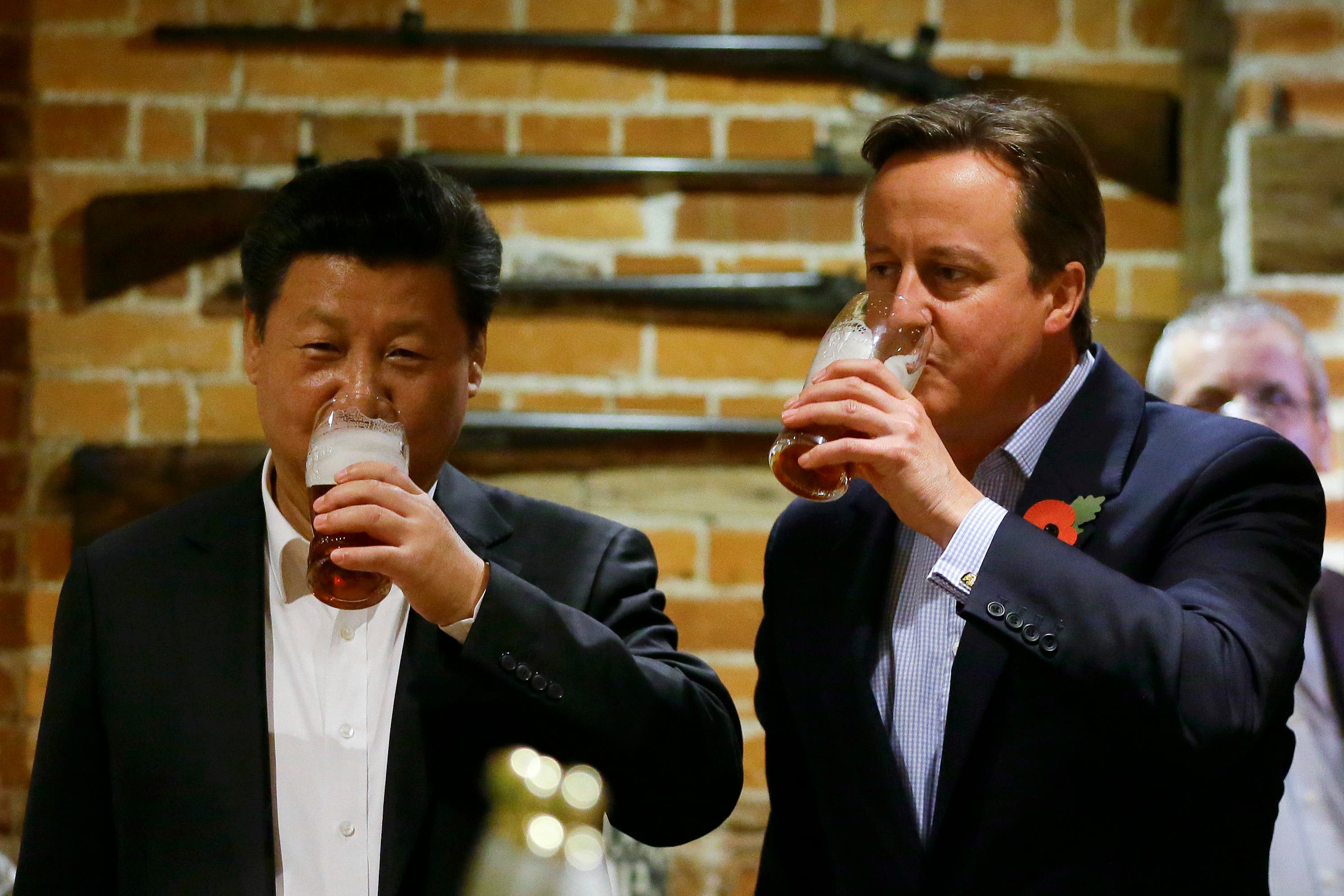Lord Cameron says UK needs to engage with China
David Cameron has defended his pursuit of close ties with China as prime minister during the so-called ‘golden era’.

David Cameron has defended his pursuit of close ties with China as prime minister, as he insisted that “engaging” with Beijing today is necessary.
The former PM, who was appointed Foreign Secretary this month in a shock return to frontline politics, said that the Asian power had become “much more aggressive, much more assertive” since he left office in 2016.
As prime minister, Lord Cameron presided over the so-called “golden era” of relations between Britain and China, hosting a state visit for Chinese President Xi Jinping and welcoming investment from Beijing into the UK.
The years since have seen relations between the West and China deteriorate dramatically.
In his first foreign policy speech as Prime Minister, Rishi Sunak declared the golden era over and described the pursuit of closer economic ties over the previous decade as “naive”.
Some Tory MPs have pushed Mr Sunak to go further and brand China a “threat”, amid concerns about recent attempts – including a visit by ex-foreign secretary James Cleverly to Beijing – to reduce tensions.
Speaking to the BBC, Lord Cameron acknowledged that times had changed while defending the foreign policy of his period in office.
“China has become much more aggressive, much more assertive, over the Uighurs, over Hong Kong, the ‘wolf warrior’ diplomacy,” he said.
“And so that’s why security and protection is such an important part of our policy.
“We also need to align more carefully with our allies to make sure we can counter any malign threats coming from China. So, it is a realistic hard-headed policy.”
He said: “When I became prime minister, the greatest need was for Britain to grow again, trade again, with exports to help our businesses around the world.
“I loaded up planes, I took them to India, I took them to China, I took them to Africa to get the economy moving again.”
He said that “engaging China is one part of the approach we need to take.
“Not least, because China is a fifth of humanity. We’re not going to solve challenges like climate change, unless we engage.
“And hopefully I can be a part of that.”
Lord Cameron, who resigned as prime minister after losing the 2016 Brexit referendum, said that the UK had to be “a friend, a neighbour and the best possible partner” for the EU.
“When you look at the engagement in Ukraine, that probably is the best example of how it’s worked,” he said.
“There’s no doubt that Britain is the leading European power in helping Ukraine.”
The former prime minister also indicated that he would not push for an increase in the overseas aid budget to 0.7% of national income.
It was cut to 0.5% by Mr Sunak as chancellor in 2021.
“I took this job accepting collective Cabinet responsibility,” he said.
Bookmark popover
Removed from bookmarks